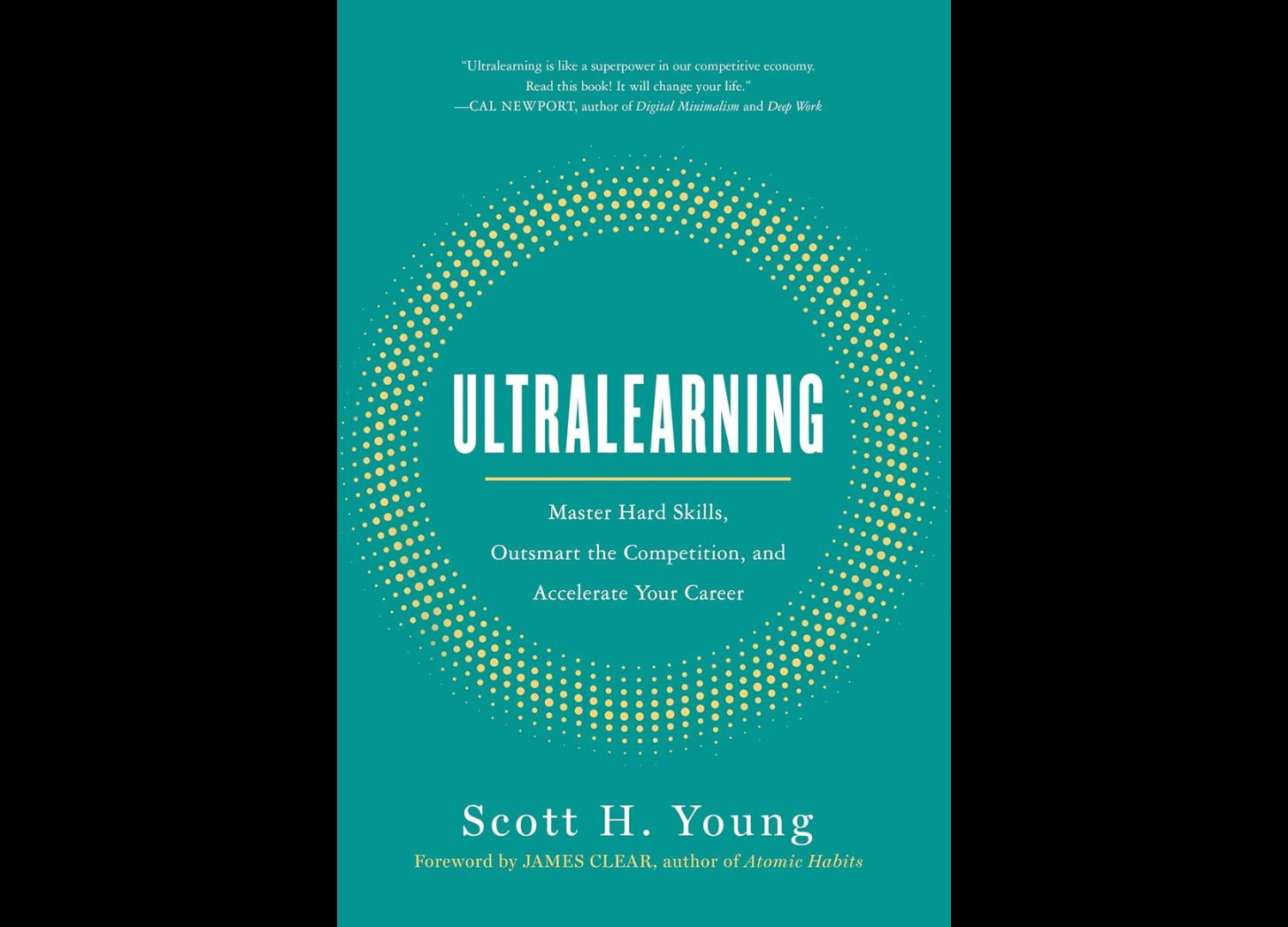Book Byte #164 "Ultralearning" by Scott H. Young
Master Hard Skills, Outsmart the Competition, and Accelerate Your Career
📣 Curious Quote from the Author
“Your deepest moments of happiness don’t come from doing easy things; they come from realizing your potential and overcoming your own limiting beliefs about yourself.”
“By taking notes as questions instead of answers, you generate the material to practice retrieval on later.”
“Learning, at its core, is a broadening of horizons, of seeing things that were previously invisible and of recognizing capabilities within yourself that you didn't know existed”
“One rule I’ve found helpful for this is to restrict myself to one question per section of a text, thus forcing myself to acknowledge and rephrase the main point rather than zoom in on a detail that will be largely irrelevant later.”
“Beyond principles and tactics is a broader ultralearning ethos. It’s one of taking responsibility for your own learning: deciding what you want to learn, how you want to learn it, and crafting your own plan to learn what you need to. You’re the one in charge, and you’re the one who’s ultimately responsible for the results you generate. If you approach ultralearning in that spirit, you should take these principles as flexible guidelines, not as rigid rules. Learning well isn’t just about following a set of prescriptions.”
“The best ultralearners are those who blend the practical reasons for learning a skill with an inspiration that comes from something that excites them.”
“Metalearning: First Draw a Map. Start by learning how to learn the subject or skill you want to tackle. Discover how to do good research and how to draw on your past competencies to learn new skills more easily.”
“If you want to pass a test, practice solving the kinds of problems that are likely to appear on it”
“The best kind of feedback to get is corrective feedback. This is the feedback that shows you not only what you’re doing wrong but how to fix it. This kind of feedback is often available only through a coach, mentor, or teacher. However, sometimes it can be provided automatically if you are using the right study materials.”
“Directness is the practice of learning by directly doing the thing you want to learn. Basically, it’s improvement through active practice rather than through passive learning. The phrases learning something new and practicing something new may seem similar, but these two methods can produce profoundly different results. Passive learning creates knowledge. Active practice creates skill.”
“If you’re pursuing a project for mostly instrumental reasons, it’s often a good idea to do an additional step of research: determining whether learning the skill or topic in question will actually help you achieve your goal.”
📚 Cognition of the Book’s Big Idea
At first glance, ultralearners can appear like outliers. But in reality, anybody can undertake ultralearning`s aggressive, self-directed gaining knowledge of fashion to grasp tough obligations in a quick time. Want to correctly entire your very own ultralearning assignment? Start with the aid of using laying the groundwork: practice metalearning techniques and refine your focus. Optimize your gaining knowledge of with the aid of using focussing on directness, drilling, retrieval, comments and retention. To take matters to the following level, domesticate instinct and test intensively.
Pick the mind of an expert.
Interested in taking up an ultralearning project to hone your expert edge? Before you decide to a time-eating assignment like coaching your self the fundamentals of a coding language, make certain it aligns together along with your profession objectives. Find a expert on your ultralearning discipline and behavior an Expert Interview with them. Ask them what standards are essential to the discipline, what abilities are in call for and which assets they advise operating with. After all, there`s no factor gaining knowledge of C++ in case you need to interrupt into a place wherein all people codes in Python.
🛠️Fixing the Tech Industry
“Passive learning creates knowledge. Active practice creates skill.”"
This sentence is a lot more important than you probably realize. Knowledge is Free. It can be read and absorbed through digital or physical means. It’s sits there just waiting for you to grab it, out on the Internet, in every corner of the Digital World. It also starts its value at $0. AI fell in line with this theory long ago. Information is a commodity, what people pay for, what people crave is Skill. The only way to gain skill is to put that knowledge into practice. Like Neo downloading Kung Fu into his brain in the matrix, we can do the same thing, but “our” bodies won’t keep up with that knowledge like Neo. We need to practice to get good at the Skill, we need to train our bodies to handle the stress of the Martial Art.
How we do one thing is how we do everything. If all we do is absorb knowledge without practice, it’s not worth anything and most likely never will be.
🤝Collaborate with others with this Social Media Prompt:
What do you think is most important when learning a skill?
My Software Stack: I use Skool for my Online Community Platform and ClickFunnels for my Landing Pages, Payments, and Email Sequencing. I use Substack for my Newsletter and Taskade for AI Note Taking/Second Brain/Project Management. I use my Personal Amazon Store for Tech and Book Recommendations.
Try out the "Think and Grow Rich Challenge" by Russell Brunson and Learn more about the First Self Help Author Napoleon Hill

